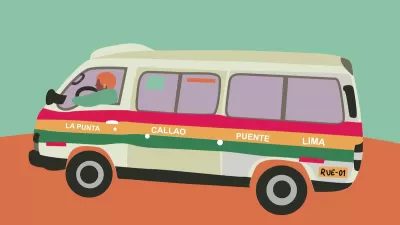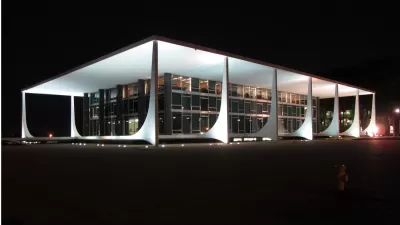Informal settlements like slums and favelas have been perplexing governments in Latin America for decades. A new report looks at two of the ways governments are addressing these areas, and the challenges that remain.
In this piece from Citiwire, Anthony Flint summarizes the report, and highlights the mixed successes of the two dominant approaches to legitimizing informal settlements.
"What is known as the "regularization" of informal settlement has taken two major forms: legalizing parcels by awarding the occupants titles to the property as exemplified in Peru, and Brazil's broader approach that combines titling with extensive upgrading of public services.
Both approaches have had an impact. But a report recently published by the Lincoln Institute, Regularization of Informal Settlements in Latin America, suggests that these efforts are very much a work in progress. Titling by itself is relatively inexpensive but has not triggered neighborhood improvements, while upgrading is much more costly and can stimulate additional irregular development by those hoping to benefit from future upgrading."
FULL STORY: Puzzles of Legalizing Squatters’ Settlements Worldwide

Maui's Vacation Rental Debate Turns Ugly
Verbal attacks, misinformation campaigns and fistfights plague a high-stakes debate to convert thousands of vacation rentals into long-term housing.

Planetizen Federal Action Tracker
A weekly monitor of how Trump’s orders and actions are impacting planners and planning in America.

In Urban Planning, AI Prompting Could be the New Design Thinking
Creativity has long been key to great urban design. What if we see AI as our new creative partner?

King County Supportive Housing Program Offers Hope for Unhoused Residents
The county is taking a ‘Housing First’ approach that prioritizes getting people into housing, then offering wraparound supportive services.

Researchers Use AI to Get Clearer Picture of US Housing
Analysts are using artificial intelligence to supercharge their research by allowing them to comb through data faster. Though these AI tools can be error prone, they save time and housing researchers are optimistic about the future.

Making Shared Micromobility More Inclusive
Cities and shared mobility system operators can do more to include people with disabilities in planning and operations, per a new report.
Urban Design for Planners 1: Software Tools
This six-course series explores essential urban design concepts using open source software and equips planners with the tools they need to participate fully in the urban design process.
Planning for Universal Design
Learn the tools for implementing Universal Design in planning regulations.
planning NEXT
Appalachian Highlands Housing Partners
Gallatin County Department of Planning & Community Development
Mpact (founded as Rail~Volution)
City of Camden Redevelopment Agency
City of Astoria
City of Portland
City of Laramie




























